China Aviation Museum
China Aviation Museum is the first large-scale open aviation museum in China. It is located at the foot of Datangshan, Changping District, Beijing. After many years of closure, natural vegetation is dense. In the 720,000 square meters of the library area, the green coverage area reached 450,000 square meters.
China Aviation Museum is the first batch of national first-class museums, patriotic education bases, the first batch of national defense education demonstration bases and popular science education bases, and the national AAAA-level tourist attractions. It is the top five in the world and the first in Asia. It is a large-scale aeronautical Museum integrating knowledge, education, science and technology, research, garden and tourism.
Historical evolution
The China Aviation Museum was built in October 1986 and opened to the public on November 11, 1989.
On August 20, 2007, the China Aviation Museum was assessed as a national 4A-level tourist attraction by the National Committee for Quality Grading of Tourist Scenic Spots.
In May 2008, the State Administration of Cultural Relics awarded the China Aviation Museum the first-class museum.
On May 25, 2009, China Aviation Industry Group Corporation and the Air Force of China signed an agreement for the co-construction of the China Aviation Museum. After the museum was expanded, more than 800 prototypes of various existing aviation equipment were collected, such as the Yinglong fighter aircraft independently developed by China Aviation Industry. At the same time, the permanent sculpture group landscape constructed by the "sword" main sculpture, hero Avenue and hero Memorial Wall three parts combination, showing the glorious course of China Air Force and Air Force from history to the future .
From 1986 to 2010, the development process can be roughly divided into four stages: the first stage is the preparatory stage, the use of caverns to establish the "Air Force Weapons and Equipment Exhibition Hall", go to all parts of China to collect and rescue more than 100 Chinese and foreign famous aircraft, more than 4,000 aeronautical relics. In the second stage, the outdoor exhibition area was redeveloped and planned for the basic construction stage. The exhibition of the achievements of military training simulation equipment and the demonstration of air force scientific and technological training were carried out successively. The third stage is the preliminary stage of development. It will change from cultural relics display to comprehensive exhibition, improve supporting infrastructure, and organize activities such as "Aeronautical Centennial Retrospective Exhibition" and "Commemoration of the 60th Anniversary of the Victory of the War of Resistance Against Japan". The fourth stage is the rapid development stage. In order to meet the new requirements of the museum function in the new period, the collection resources are deeply excavated, the functions of science and education are studied and expanded, and the exhibition forms of high-tech exhibitions are developed. It has gradually developed into the first batch of national first-class museums, national patriotism, national defense education and popular science education bases .
On April 24, 2017, the wreckage of Long March No. 2 F rocket was collected in the museum. At the same time, the opening ceremony of "Sky Mailbox in Museum" was jointly held by the Space Museum and the Space Post Office of Space City.
Tourism information
Traffic guide
City Traffic: Take the Changping Metro Line, get off at Shahe Station, transfer to No. 945 bus, or transfer to No. 643 bus at the end of Metro Line 5.
Self-driving traffic: from Exit 22 of Beijing-Tibet Expressway (original Badaling Expressway), that is, Xiaotangshan Exit to the right and to the north of the road 9 km east.
Opening Hours
Every day from 08:30 a.m. to 05:30 p.m. (closed on Monday, except for statutory holidays)
Ticket Price
Free admission, comprehensive exhibition hall: 20.00 yuan, cavern exhibition hall: 20.00 yuan
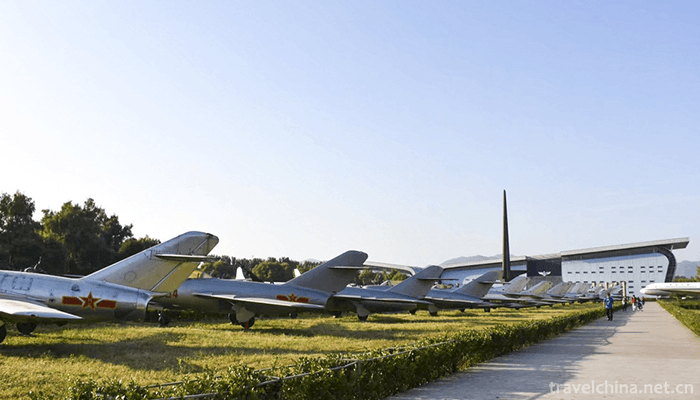
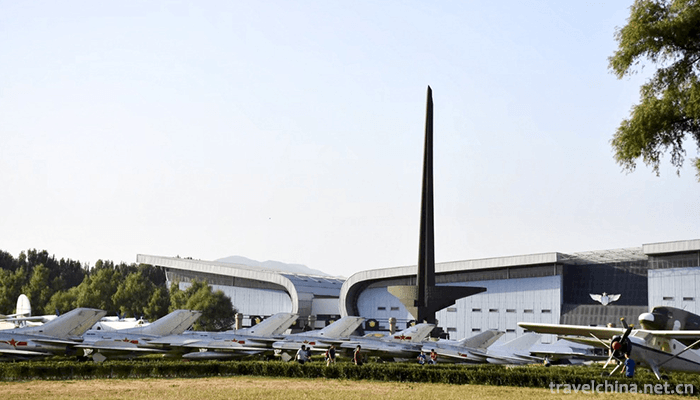
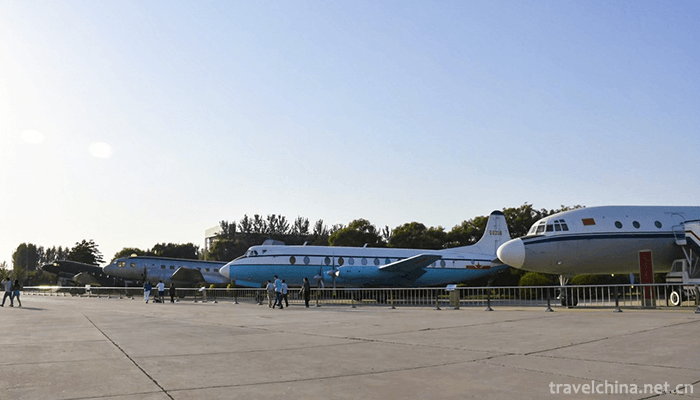
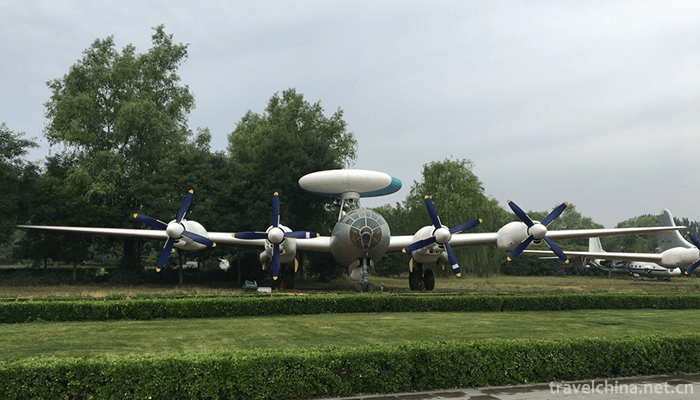

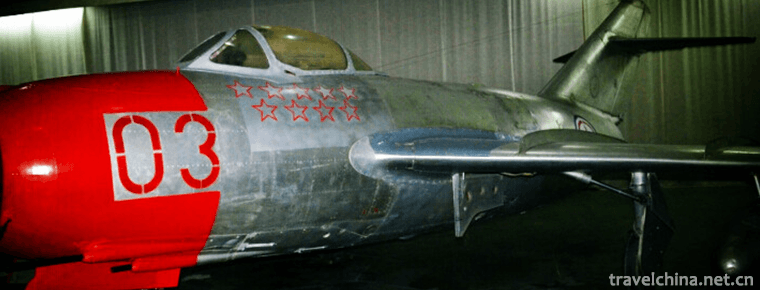
-
1.Chengji Mountain Tourist Scenic Spot
Qiu Mountain, also known as Linglong Mountain, Xianshan Mountain on a journey to the West and Qiu Mountain Scenic Area, is located in Suiping County, Zhumadian City, Henan Province
Time 2018-12-09 -
2.Mupa Mipa
Mupa Mipa, a local traditional folk literature in Simao City, Yunnan Province, is one of the national intangible cultural heritage.
Time 2018-12-15 -
3.Guangegou National Forest Park
Guan'e Gou National Forest Park, located in the outskirts of Chang County, Longnan City, Gansu Province, consists of Guanzhugou, Goose Lou Gou, Mulong Gou, Miaogou and other scenic spots
Time 2019-01-13 -
4.The Twin Colossals
Shuangta Mountain is located ten kilometers southwest of Chengde Summer Resort in Hebei Province, with a total area of 3000 hectares and beautiful scenery. It is the largest natural scenic resort in C
Time 2019-02-08 -
5.Bru
Bru, Mongolian means throwing. Competitions are divided into two categories: long throw and accurate throw, mostly held in festive festivals. The long throw is to decide
Time 2019-04-04 -
6.Haimen mountain song
Haimen Mountain Opera is a traditional opera popular in Haimen area of Nantong, Jiangsu Province. It originated from Haimen Mountain Song and developed into
Time 2019-05-02 -
7.Legend of Yellow Crane Tower
The legend of the Yellow Crane Tower has a long history, and has been accompanied by the repeated destruction and construction of the Yellow Crane Tower
Time 2019-05-04 -
8.Hui Folk Stories
Hui Folklore Stories is a book published by Ningxia People's Publishing House in 2009 by Li Shujiang and Wang Zhengwei.
Time 2019-05-04 -
9.Mongolian Wedding
Mongolian young men and women marry on auspicious days, and men give gifts to women's homes. The gifts include cash, clothes, cloth, jewelry, rice and so on. There are cabinets, bedding, clothes, jewe
Time 2019-06-03 -
10.Reba Dance
Reba dance is a form of dance performed by Tibetan "Reba" artists. Reba is a group of street artists who make a living selling arts (usually composed of family as the basic unit) performing,
Time 2019-06-11 -
11.Legend of Yongding River
Yongding River legend is one of the local folklores in Beijing. Among many legends, the legend of river blocking is representative; the legend of Shijing Mountain and Shijing Mountain; the legend of b
Time 2019-07-14 -
12.Tie Muer Buhua
Tie Muer Buhua (1286 - 1368). Yuan will be the first to stay. Rate troops to go Xiangyang He won the battle with song, fan and Wen Hu in the Shigi shoal beach. Later from Bo Yan Song, in Yang Luo Bao
Time 2019-09-14